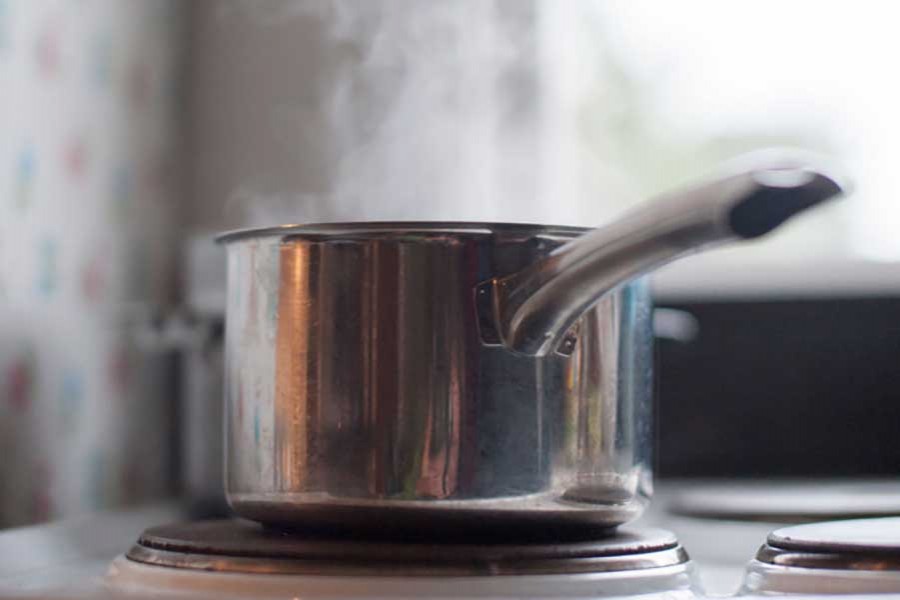If the cold spell of this winter has taken a toll of not more than a couple of scores of lives, the fires made to stay warm by people have accounted for no fewer than three hundred of them. The news is that a few people are consumed almost every day by the fires they stoke up in order to keep them warm. Reports of such deaths are recurrent from the country's north -- mostly Rangpur. Another attendant ill of the chilly winter this time is the burn injuries sustained by people, children in particular from hot water usually meant for bathing. Incidence of both types of accidents, from a cursory look, is unexplainably high.
However it is not. This is a fair -- albeit tragic -- reflection of the socio-economic condition as also the level of awareness of danger among a section of people. No one willingly wants to embrace a painful death from fire. But when people have not enough warm clothes, quilt or blanket, they shiver throughout the night and make fires in order to stay warm. For a while the poor human bodies get numb and even they fail to feel the fire. By the time they feel, their clothes have caught fire, it is too late to save themselves. Had these people have a decent house to live in, the bite of winter would not be so severe. Additionally, if they had heavy warm clothes like people in cold countries, they would not require lighting fires for keeping them warm like this. In the country's north, there are areas perennially deficit in foods and other amenities.
So far as burn from hot water used for bathing is concerned, the socio-economic status of people makes the difference. Not many people have geyser to have safe supply of moderately hot water for bathing or any other purpose. They have to use gas ovens or other ovens to heat up water. Here the practice is much to blame. Most people carry the pan with boiling water to the bathroom risking accidents. Just a little change in their practice can avoid such accidents. Instead of carrying the boiled water, carry the tub quarter filled with cold water to the kitchen. Now pour the hot water into it and risk of burn injuries is gone. Even many asked to bring about this simple change in their practice would not listen to. They pretend to be busier than they actually are. Once the inevitable accident happens they rue over not paying heed to the advice for the rest of their lives.
Sure enough, similar awareness can as well keep fire away from engulfing people if they just follow some simple rules. Before lighting a fire to stay warm, people should tuck in all loose ends of their wears -fringes of sharis and shawls to be precise. They must keep at least a reasonable distance from the fire so that it does not reach them anytime. The survival instinct in man is strong enough to keep them on alert. But in time of natural calamities, people's defence slackens -only more so when poverty and misery combine together to demoralise them.
This winter's severest cold wave in 50 years lashed the north without issuing an early warning. The met office and any other organisations had no inkling that it could be this chilling. But they should have warned and prepared people about this sometime before. They have failed in their duties. People could not prepare themselves in the least for the cold spell. Also not many initiatives were noticeable to help the cold-stricken people with warm clothes. If there were any prediction beforehand, more people could come forward to help the affected people in the north.


